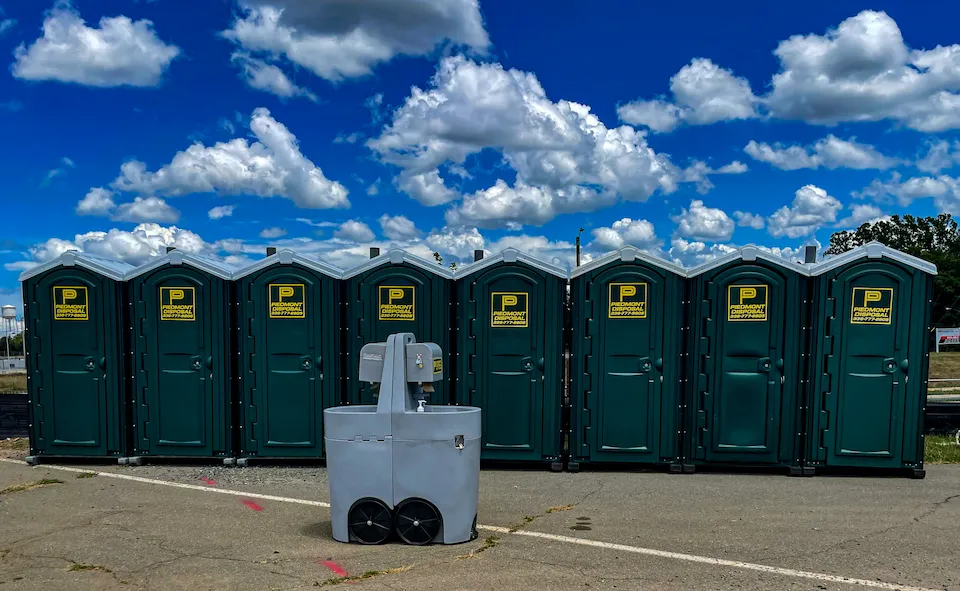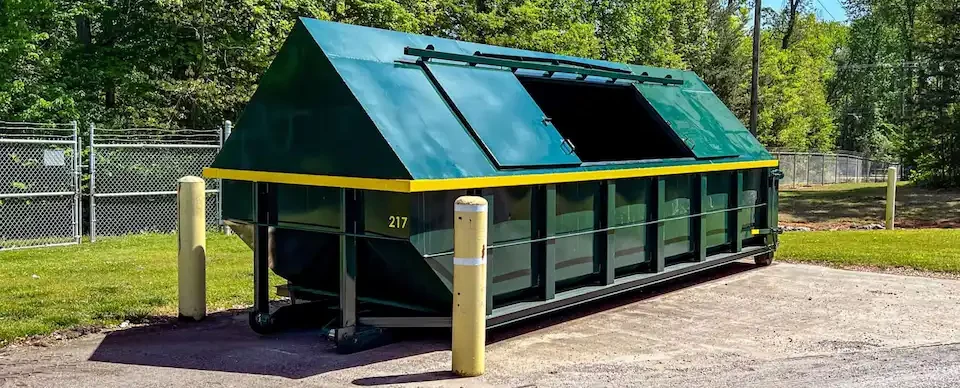
Event Planning Checklist: Develop an Effective Waste Management Plan for Your Events
Whether you're organizing a small gathering, a corporate event, or a large-scale festival, one crucial aspect that often gets overlooked is having a thorough waste management plan. Events can generate substantial amounts of waste, from food scraps to packaging materials, and ensuring that it's handled responsibly is not only environmentally responsible but also essential for a successful event.
Our event site waste management experts from Piedmont Disposal hope to provide you with a comprehensive event planning checklist to help you develop an effective event waste management plan. Join us as we explore strategies to minimize waste, maximize recycling, and make your next event a greener, cleaner, and more sustainable experience for all.

Pre-Event Planning
In the initial stages of organizing an event, thoughtful pre-event planning is crucial for a successful and sustainable waste management plan.
Define Event Goals and Objectives
Define what you hope to achieve with your event, whether it's raising awareness for a cause, promoting sustainability, or simply ensuring a memorable experience for attendees. Once you've established your event's purpose, it's time to determine waste reduction targets within your waste management plan. Set measurable goals for waste reduction that align with your event's overall objectives. For example, you might aim to divert a certain percentage of waste away from landfills through recycling or composting efforts.
Identify Event Location and Logistics
The choice of event location can significantly impact the waste management facility efforts. Event planners should assess the waste infrastructure at the venue to understand its current capabilities and limitations. Consider factors such as the availability of recycling bins, waste disposal facilities, and accessibility for waste collection vehicles. Knowing the venue's waste handling capabilities will help you plan for any necessary improvements or adjustments to meet your waste reduction targets effectively.
Budget Allocation for Waste Management Plans
Start by estimating the costs associated with waste disposal and recycling services. This might include expenses for waste collection, transportation, recycling containers, and any additional equipment or personnel required. Allocating a portion of your event budget to cover the costs of your waste management plan ensures that trash management is not an afterthought but an integrated aspect of your financial planning.
Establish a Waste Management Team
Define roles and responsibilities for team members, ensuring that each aspect of your waste management plan is covered. Identify team leaders or coordinators who can oversee the entire waste management process. Ensure that team members are adequately trained in waste sorting, safety procedures, and the specific waste management goals of your event.
Waste Assessment and Planning
An event manager must delve deep into understanding the nature and volume of waste generated at the venue, explore innovative strategies for waste reduction, and establish specific diversion targets.
Conduct a Waste Audit
Start by identifying the various waste streams your event is likely to produce, such as food waste, packaging materials, paper, and plastics. Estimate the volume of waste each stream is expected to generate based on factors like the number of attendees, the event's duration, and the amount of waste acquired for a past event. Conducting a waste audit provides a baseline understanding of your event's waste generation, allowing you to tailor your waste management strategies accordingly.
Identify Waste Reduction Strategies
Once you've assessed the waste streams, it's time to explore potential waste management plan reduction strategies. The principles of "reduce, reuse, recycle, and compost" should guide your planning efforts to manage waste. Consider ways to minimize waste generation by encouraging attendees and vendors to reduce their use of single-use items, such as disposable cutlery and containers. Collaborate with vendors and sponsors to adopt sustainable practices, such as using eco-friendly packaging or offering incentives for waste reduction.
Set Waste Diversion Goals
To track your progress and ensure a successful waste management plan, it's crucial to set specific waste diversion goals. Define clear recycling and composting targets that align with your overall event objectives. These goals could include diverting a certain percentage of recyclable materials from the landfill, reducing food waste by a specified amount, or achieving a specific composting rate.

Event Waste Collection and Sorting
This phase of your waste management plan focuses on the practical aspects of gathering waste from attendees, ensuring it's sorted correctly, and maintaining a clean event environment. Get ready to turn your waste management plan into a seamless reality, making your event both eco-friendly and enjoyable for all.
Provision of Waste Bins
Effective waste collection and sorting at your event begins with the provision of appropriately sized and designated dumpster bin rentals. To determine the type and quantity of bins needed, consider the waste streams you identified during the waste audit in the earlier planning stages.
Place bins strategically throughout the event space, ensuring that they are easily accessible to attendees. Provide bins for different waste categories, such as recycling, composting, and general waste, based on your waste diversion goals. Having the right bins in the right locations is essential for encouraging attendees to dispose of their waste responsibly.
Proper Signage and Labeling
Clear and informative signage is crucial to guide event attendees in sorting their waste correctly. Ensure that all bins are clearly marked and labeled to indicate what types of materials should be placed in each. Use visual cues, such as images and color-coding, to make it easy for people to understand and follow the waste separation guidelines.
Waste Handling and Disposal Methods
To maintain a clean and organized event space, it's essential to establish a well-structured waste management plan schedule throughout the event. Plan regular waste pickups, considering the expected volume of waste generated and the event's duration. Timely collections help prevent overflows of waste bins, reduce litter, and ensure that waste is properly sorted and disposed of. Coordinate with your dumpster rental contractors to align collection schedules with the event's peak periods and adjust as needed based on real-time observations.
Temporary Waste Storage
It's crucial to ensure that waste is stored safely and hygienically until it can be collected and transported to recycling and disposal facilities. Use secure and durable containers to prevent pests, odors, and contamination. Keep waste storage areas well-maintained and regularly emptied to maintain a clean and pleasant environment for event attendees. Designate waste storage zones away from high-traffic areas to minimize interference with the event's flow.
Trash Disposal Arrangements
Once the waste has been collected and stored properly, you need to arrange for its transportation to recycling and disposal facilities. Collaborate with waste service providers in Winston-Salem or local recycling centers to establish transportation arrangements. Ensure that waste is transported in accordance with environmental regulations and safety standards.
Verify that the transportation vehicles are equipped to handle different waste streams, such as recyclables, compostables, and general waste. Effective transportation ensures that waste is delivered to the appropriate facilities for processing, contributing to the success of your waste diversion efforts.
Need Help with Event Waste Management? Contact Piedmont Disposal Today
Are you looking to make your next event more sustainable and environmentally responsible? Piedmont Disposal is here to help you with all your event waste management needs. Whether you're planning a small gathering or a large-scale festival, our expertise can guide you in developing an effective waste management plan that reduces waste, maximizes recycling, and leaves a positive impact on the environment.
Don't let waste management be an afterthought; make it an integral part of your event planning process. Contact Piedmont Disposal today by calling us at 336-777-8805 or filling out the form below to get started.
Contact Us:
We would love to hear from you! Please fill out this form and we will get back to you shortly.
